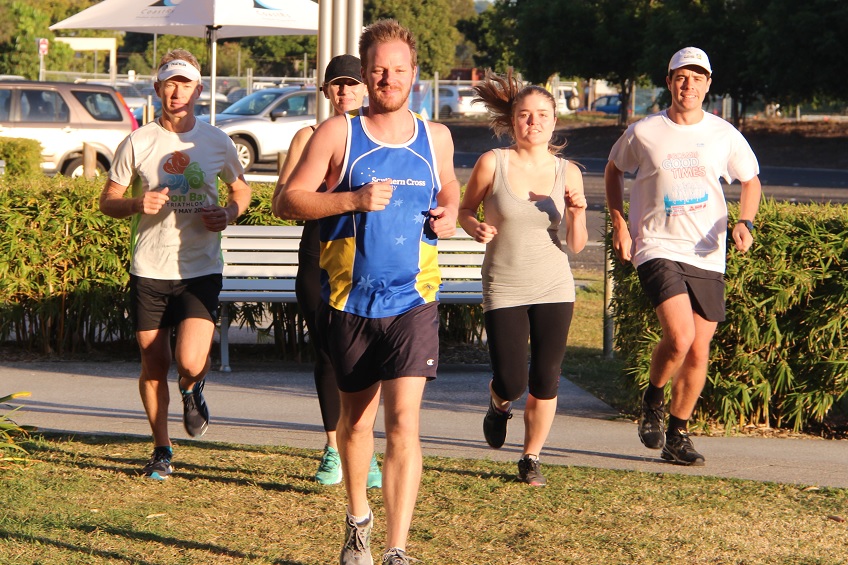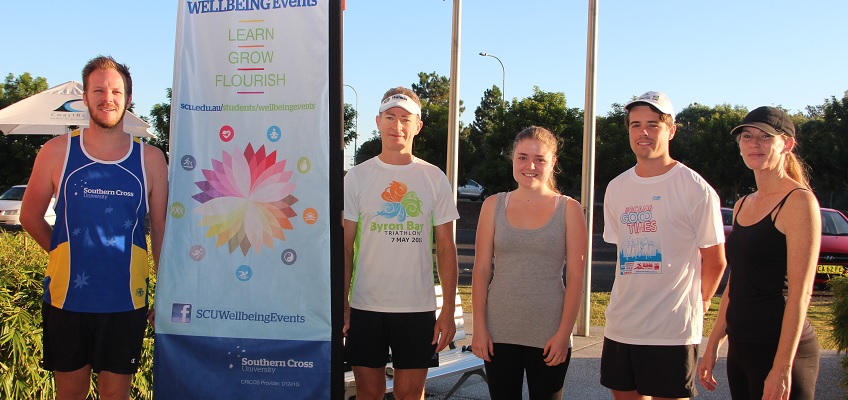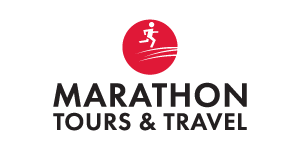In one of the most spectacular wheelchair race performances seen on the Gold Coast course, Victoria’s Sam Rizzo took the men’s 2025 Gold Coast Wheelchair...
The busy students’ guide to running

Southern Cross University psychologist Brad Inglis leads the way for students to incorporate running into their busy schedules.By Charlotte Robinson
At some point, exercise, or the lack there of, has crossed every student’s mind. Whether you’re running late for class and the staircase in building 5 seems as if it will be the end of you, or when you hear of phantom runners braving 5am in the heart of winter to pursue their hobby, taking up running is never too far from the back of the mind.
We’ve all wondered how some students manage to find the time to run, and why do they spend an hour jogging instead of having a drink with friends?
Brad Inglis is a professional psychologist and counsellor at Southern Cross University, a sponsor of the Gold Coast Airport Marathon, who facilitates a weekly running group for students, including those struggling with the demands of the busy lifestyle associated with higher education.
“The benefits of exercise, namely running, improves a student’s happiness, organisational skills, and can help students achieve that well sought after HD,” Brad said.
Brad advised that not only does running have a variety of external benefits, but it enhances memory and thinking through “its ability to reduce insulin resistance, inflammation, and stimulation of the release of growth factors”.
Okay, so perhaps it is worthwhile including exercise in busy lives, but how are students meant to fit this into their schedules?
“Students should plan out a structured exercise regime, join a running club or find a running partner, run on the same days and times each week and set a fitness goal to make your efforts achievable,” Brad said.
“Many students neglect wellbeing, namely sleeping, exercising and eating - resulting in increased anxiety and a higher likelihood of depression.
“The key to a structured regime is factoring in more than study and work.”
Psychologist Brad Inglis facilitates a regular running group to encourage students to remain active during times of high workload.Brad also noted that the main reason students fail in their final examinations is not because they have studied insufficiently, but because their experiences of anxiety was so profound it prevented them from thinking clearly, and students subsequently misread questions. Does this ring a bell?
Allocating half-an-hour per day throughout the semester, especially during exam time, towards running is going to be far more effective than sitting half delirious in front of a screen for the tenth hour attempting to cram those final PowerPoint slides.
But Brad advises students to start slowly and build a running program gradually.
“Don’t set the bar so high that you’re lining yourself up for failure,” he said.
If you have never run a day in your life perhaps consider making the Southern Cross University 10km Run or the Suncorp Bank 5.7km Challenge a personal goal.
So while you still may be wondering how running can be included in your diary amongst your studies, part time job, internship, family and down-time with friends, fear not – there is living proof that you can factor exercise into your life!
Anthony Di Battista is a runner and student at Southern Cross University, and has past ties with the Gold Coast Airport Marathon, successfully completing the 42km course last year.
In order to balance his law degree and raising a one-year-old child with his running, Anthony believes that life is a balance of body and mind.
“The balance running provides combined with a healthy and efficient body helps give you the energy required to study,” Anthony said.
“Running is great for finding headspace after a hard day and a space where I can think without interruption.”
Anthony noted an improvement in his studies as a result of his healthy balance.
Southern Cross University student Anthony Di Battista on course in last year's Gold Coast Airport Marathon.0Ellen Gould is another Southern Cross University student who makes time for running.
Ellen is in her third and final year of a Bachelor of Business in International Tourism Management, works a part time job and volunteers as a marketing intern one day per week, as well as maintaining a healthy social life.
“Being such a busy person, I have made time by getting up earlier. I am running at 5am every morning in order to fit it in and give me more motivation,” Ellen said.
Unfortunately, many of us may find it difficult to tear ourselves away from our beds this early, in which case Ellen takes a very tough love approach.
“Get up early! I am not a morning person but I have become one! It is the best time of day to motivate yourself as it's first thing and gives you energy for your day,” Ellen said.
“Also, make a routine and do it regularly. If you only run occasionally, then you won't be motivated and this will end the process before it even begins. Just stop putting it off and start today, and once you start just push yourself through the first week then it all becomes easier,” Ellen said.
Ellen has only experienced benefits as a result of this daily routine.
“I have found that I fit more into a day by getting up early and running! I have more time in the mornings to get my assignments and work started and feel like I have more energy to get into my studies for the day!”
But like any activity that you may be considering, it all comes down to you. Running while studying relies on staying motivated and being organised. Can’t do this alone? Find a running buddy or group to help!
To follow Ellen and Brad’s advice, join Anthony and hundreds of other students in the Gold Coast Airport Marathon by entering.
Happy running!





























